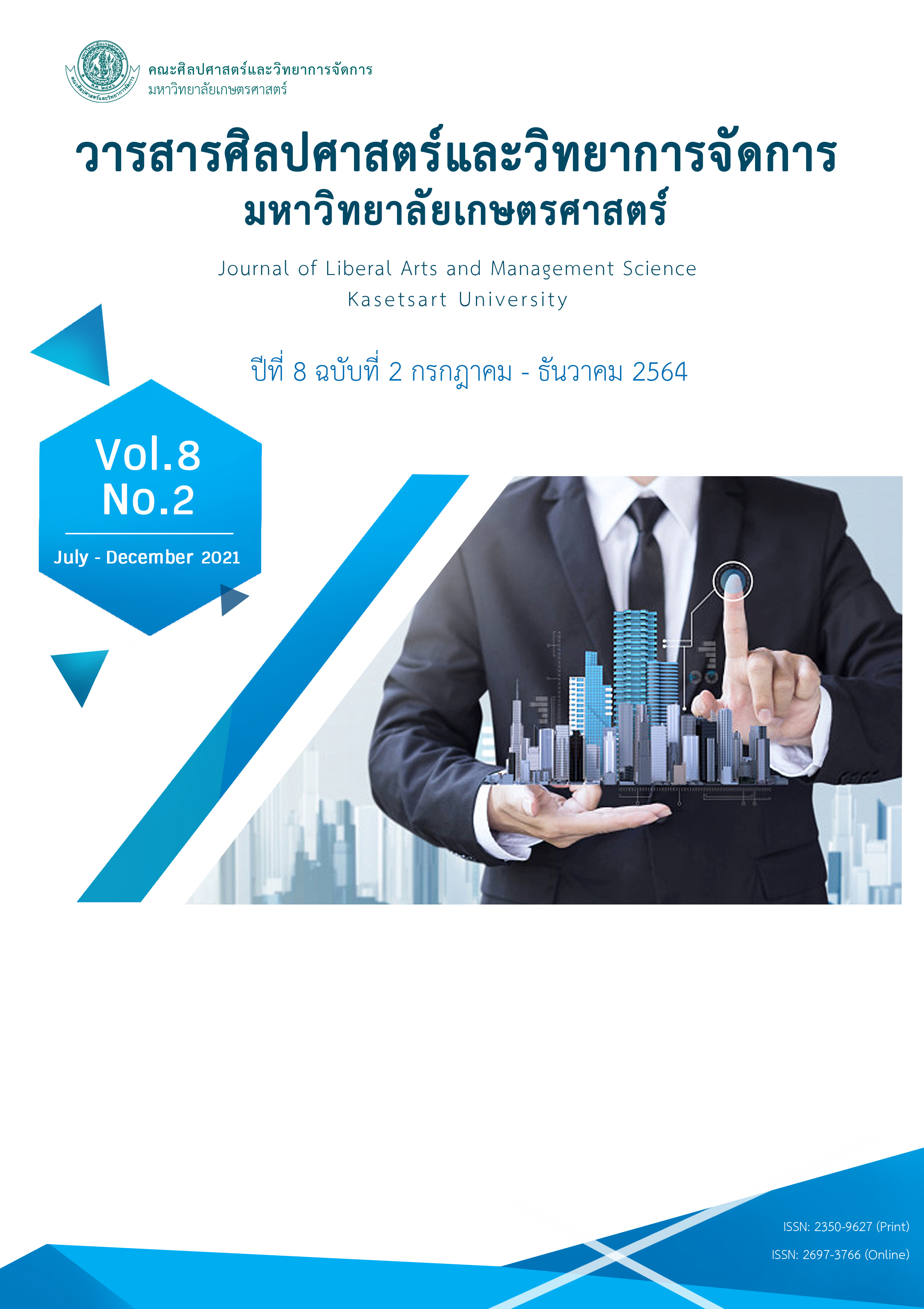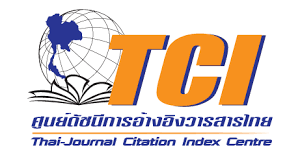THE LOCAL THAI DESSERT WISDOM MANAGEMENT STRATEGY FOR THAI DESSERTS IN CONTEXT OF PROMOTION AND DEVELOPMENT TOWARDS TOURISM COMMUNITY: CASE STUDY BAN THA KHOI COMMUNITY, SUPHAN BURI PROVINCE, THAILAND
Keywords:
Thai Dessert, Wisdom Management, Tourism CommunityAbstract
This research is a study on local Thai dessert wisdom management data in Ban Tha Khoi, Suphan Buri Province in context of OTOP Nawat Witee based on analytical thinking frame of “dynamic and sustainability”. The in-depth interview, focus group and observation of Thai dessert making process of fifteen village scholars are applied together with information acquired from document analysis. The results prove that Ban Tha Khoi Community Thai dessert wisdom is living foundation of villagers that connects with cultural living and local traditions accumulated over a long period of time. The majority of desserts including made from local ingredients and local materials. The local Thai desserts are made for the purpose of religious ceremonies, community traditions and occupational season. They are systematically inherited and conserved for generations. However, modern values and cultures are disseminated to Thai society as well as rural communities, roles and significance of Thai desserts are inevitably affected and its status has been changed to “tourism product”. The strictness of profound belief, religious faith and tradition has been decreasing and directly affects popularity of local Thai desserts in communities. The inheritance from generation to generation disappears resulting in loss of scholars and inheritance process is limited in family. Local Thai dessert wisdom of community likely risks to heritage loss. OTOP Nawat Witee policy enables communities to restore its desserts as tourism activities through adjusted tourism products which impress visitors. The community tourism committee determines two goals namely local Thai dessert wisdom recovery and wisdom invention for community tourism activity promotion. Hence, it is a strategy competing with “dynamic and sustainability” with local wisdom as guarantee.
References
กรมการพัฒนาชุมชน. (2561). คู่มือบริหารโครงการชุมชนท่องเที่ยว OTOP นวัตวิถี. สืบค้นเมื่อ 18 กุมภาพันธ์ 2564, จาก http://www.oic.go.th/FILEWEB/CABINFOCENTER3/DRAWER051/GENERAL/DATA0000/0000042.PDF.
กรรณิการ์ ว่าเร็วดี, สุรีย์รัตน์ บำรุงสุข, และสิริวรรณ นันทจันทูล. (2559). ชื่อขนมไทยในมิติแห่งภาพสะท้อนวัฒนธรรม. การประชุมวิชาการระดับชาติ ครั้งที่ 13 (หน้า 1360-1367), วันที่ 8-9 ธันวาคม 2559. นครปฐม: มหาวิทยาลัยเกษตรศาสตร์ วิทยาเขตกำแพงแสน.
ณัฎฐกานต์ พฤกษ์สรนันทน์, จุฑามาศ วิศาลสิงห์, และฐานกาญจน์ วงศ์วิศิษฎ์ศิลป์. (2560). แนวทางการสอดประสานวิถีไทยและภูมิปัญญาท้องถิ่นสู่ห่วงโซ่อาหารเพื่อเพิ่มคุณค่าและมูลค่าการท่องเที่ยว. วารสารวิทยาการจัดการสมัยใหม่, 10(2), 169-812.
ณิชมน ภมร, และ พัชรี ตันติวิภาวิน. (2020). การจัดการความรู้ภูมิปัญญาท้องถิ่นด้านวัฒนธรรมอาหารพื้นบ้านภาคเหนือตอนบนของไทย. วารสารบัณฑิตรังสิตศึกษาในกลุ่มธุรกิจและสังคมศาสตร์, 6(2), 28-44.
พิมพ์ระวี โรจน์รุ่งสัตย์. (2561). การพัฒนารูปแบบการจัดการภาพลักษณ์อาหารท้องถิ่นเพื่อเสริมสร้างความจงรักภักดีของนักท่องเที่ยวในจังหวัดเพชรบุรี. วารสารวิชาการท่องเที่ยวไทยนานาชาติ, 14(1), 1-16.
พิสิฏฐ์ โคตรสุโพธิ์, ธเนศ ศรีวิชัยลำพันธุ์, และวีระพงษ์ แสงชูโต. (2557). การถ่ายทอดศิลปะและวัฒนธรรมภูมิปัญญาล้านนาสู่สังคมโดยผู้ทรงภูมิปัญญาท้องถิ่น. เชียงใหม่: สถาบันวิจัยสังคม มหาวิทยาลัยเชียงใหม่.
มณเฑียร ศุภลักษณ์. (2541). ตำนานขนมไทย. กรุงเทพฯ: เอส.ที.พี.เวิลด์ มีเดีย.
ศาตรา กระฉอดนอก. (2552). การจัดอาหารไทยให้แสดงออกซึ่งเอกลักษณ์ไทย (วิทยานิพนธ์ปริญญามหาบัณฑิต). มหาวิทยาลัยศิลปากร, นครปฐม.
อภิญญา ตันทวีวงศ์. (2556). บนเส้นทางการจัดการด้านอาหารเพื่อคนไทยทั้งมวล. กรุงเทพฯ: สำนักงานกิจการโรงพิมพ์องค์การทหารผ่านศึก.
Department of Tourism. (2016). Tourism Statistics 2016. Bangkok: Ministry of Tourism and Sports, Thailand.
Gaztelumendi, I. (2012). Global trends in food tourism. Madrid : World Tourism Organization.
Hall, C. M. (2012). Boosting food and tourism-related regional economic development. In A. Dupeyras (Ed.), OECD studies on tourism: Food and the tourism experience (pp. 49-74). Korea: OECD.
Holm, J., Pedersen, L. M. B. & Sorensen, S. (2013). Experiencing organic farms and food by regional tourism innovation. Acta Agriculturae Scandinavica, Section B – Soil and Plant Science, 63, 85-93.






